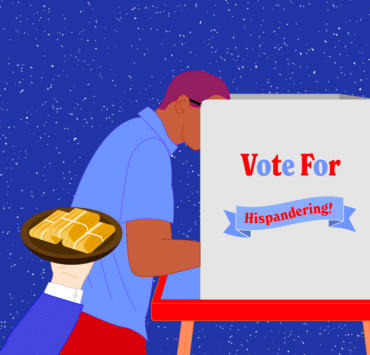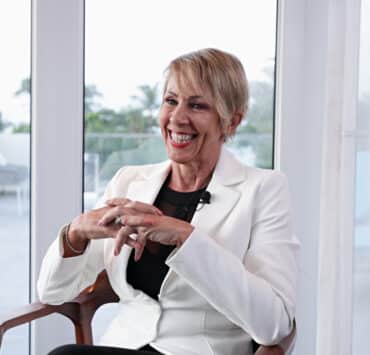|
Getting your Trinity Audio player ready...
|
As a Latino and person of color in the US, my unique journey of becoming the first in my family to earn undergraduate and doctorate degrees, traveling the world, and becoming an author has shaped the person I am today. This includes my perspective, values, and identity, which, of course, affect my leadership and career.
We often focus on the positives of this journey for leaders and other high-achieving individuals, but one of the most glaring negative outcomes is the imposter syndrome that comes with being the first and only in anything. Imposter syndrome is defined by two main characteristics: persistent self-doubt and a false sense of fear of being exposed as a fraud despite clear evidence of competence like promotions, strong reviews, good grades, and more.
What Fuels Imposter Syndrome?
This syndrome stem from and feeds off several psychological and societal narratives including, but not limited to:
The Myth of Perfection: Setting unrealistically high standards for oneself can lead to feeling inadequate when those standards aren’t met. Without appropriate and more balanced models, this can be an easy trap for anyone to fall prey to, especially leaders. Succumbing to perfectionism fosters the belief that any success is merely due to luck or external factors.
Social Comparison: Constantly comparing oneself to others who seem more accomplished can magnify feelings of inadequacy. These comparisons often cause individuals to overlook their own achievements and dedicate more mental space on perceived shortcomings.
Stereotype Threat: Being part of a marginalized group can heighten the fear of confirming negative stereotypes. This added pressure can lead individuals to attribute their accomplishments to external factors rather than acknowledging their own skills. The oft-quoted example is tokenism.
Internalizing Bias: This happens when leaders of color believe that certain groups are less capable, which causes individuals from those groups to doubt their abilities even when evidence proves otherwise.
Lack of Representation: A scarcity of role models from similar backgrounds can make individuals feel like outliers. Inevitably, this leads to amplifying feelings of not belonging and contributes to beliefs that they don’t deserve their successes.
Overgeneralization: Associating mistakes or failures with personal shortcomings rather than situational factors can lead to a chronic belief in one’s incompetence.
Overcoming Imposter Syndrome
Understanding these underlying factors can help individuals recognize and address imposter syndrome while fostering self-confidence so they can fully embrace their accomplishments. And while impostor syndrome can be particularly daunting for leaders of color who might feel the weight of underrepresentation or cultural bias, I’ve learned that success is born from authenticity and a steadfast belief in one’s abilities.
Here are a few practical strategies anyone can use to begin to combat imposter syndrome at any stage of their leadership journey:
Own Your Historia: Recognize your achievements as a product of your hard work and skills, not luck. Acknowledge your unique perspective as an asset that enriches your leadership journey. I recognized that my achievements weren’t coincidental; they were the result of hard work, perseverance, and talent.
Cultivate Comunidad: Surround yourself with mentors and allies who understand your challenges and uplift your growth. Building a strong support system boosts confidence and provides guidance. Seeking mentorship and building a supportive network helped me realize that I am not alone in these feelings.
Embrace Fracasos: View setbacks as opportunities for learning and refinement. Adapting from failures reinforces your resilience and hones your leadership abilities. Moreover, embracing failure as a steppingstone and not a roadblock has been empowering. Instead of letting setbacks reinforce self-doubt, I use them to refine my leadership skills, learn, and grow.
Inspira: Pay it forward by mentoring aspiring leaders of color. Sharing your story and wisdom not only uplifts others, but reinforces your own self-belief as a capable and authentic leader.
While the phenomenon of imposter syndrome affects leaders across genders, ethnicities, cultures, industries, and career levels and stages, it has the most pronounced effects on women and people of color who face additional societal hurdles. Nevertheless, our collective experiences have taught us valuable lessons in conquering self-doubt and emerging stronger.
Remember that our journey as leaders of color is a testament to our strength. Let’s rewrite the narrative, break down barriers, and inspire the next generation. Together, we rise above imposter syndrome and redefine success on our own terms.
The views expressed in this article are those of the author and do not necessarily reflect the position of Hispanic Executive or Guerrero Media.
Norlan Hernández Blandón is a proud Nica/Nicoya—terms used to describe someone with Nicaraguan roots. He is the proud father to Aella Mia and husband to Isabel.
He is the founder and president of Faithful Teachings Inc. a nonprofit organization that aims to catalyze the transformation of society in Latin America through partnerships with local faith-based communities, and is also the director of the Jesse Miranda Center for Hispanic Leadership at Vanguard University. In this role, Hernández Blandónworks internally with administrators, faculty, and staff to support student success and strengthen Vanguard University’s Hispanic-serving initiatives. Externally, he helps advance the center’s mission through pastoral education, congregational care, academic research, and community development.
His previous roles include leading a corporate training department that served an international audience. He has also led a team of higher education professionals who pioneered institutional efforts in creating an infrastructure to support fully online undergraduate and graduate students.
He holds a BA in liberal studies with an emphasis on culture and society from California State Los Angeles, an MA in theology from Fuller Theological Seminary, and a PhD in intercultural studies from Biola’s Cook School of Intercultural Studies. His research interests include Latin American identity, theology, contextualization, leadership, justice, and DEI.

